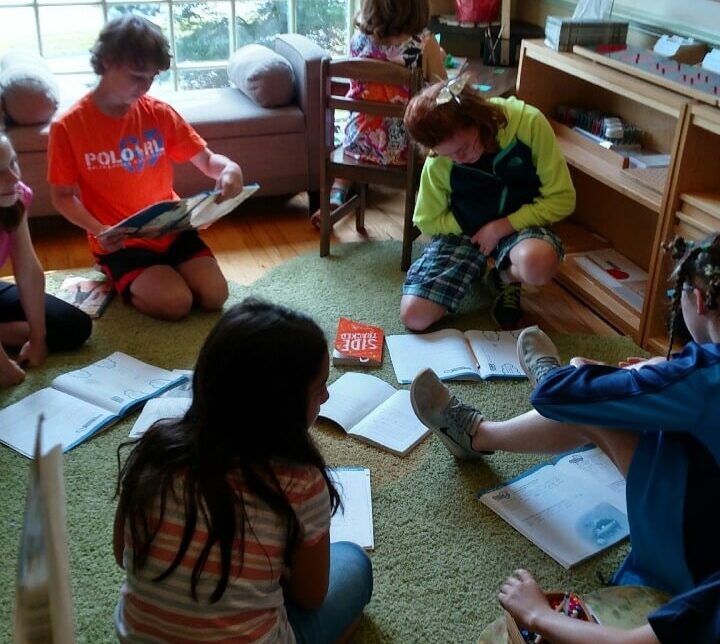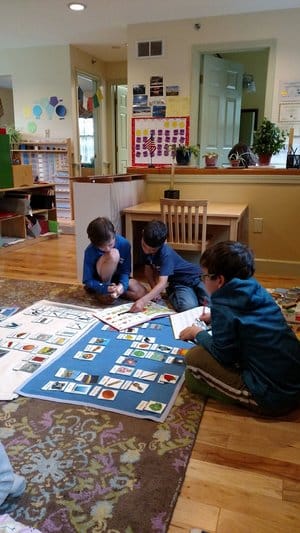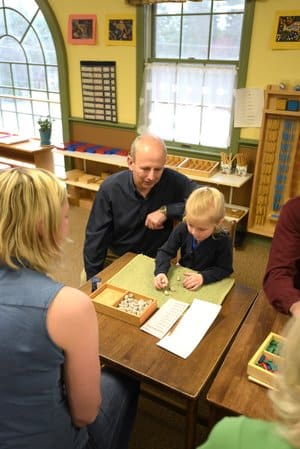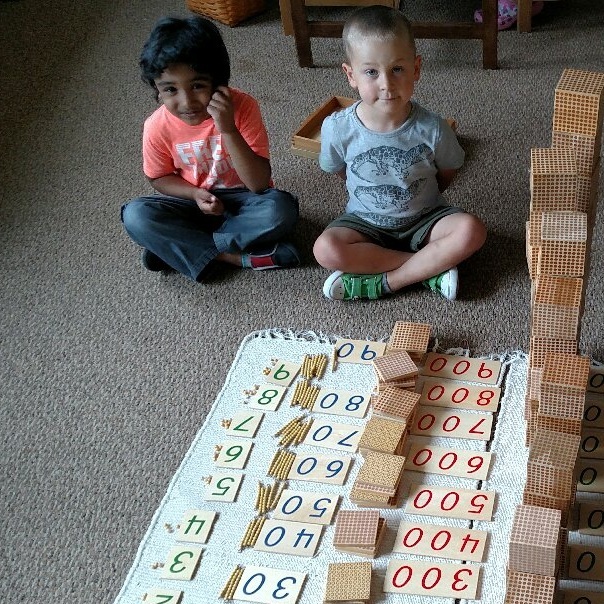Elementary

The Country Village Montessori School Elementary experience begins as the child moves into the second plane of development starting around age six. The elementary years are commonly referred to as the ages between 6 – 12 and 1st through 6th grades. This is a time of profound cognitive shifts. Though a relatively stable period of development, it is a time where foundations of higher order thinking and learning take place, root, and grow. Many have called this stage of development as the age of reason. The hallmark of the second stage is the development and use of Imagination. Questions of Why? Where? How? and to what Purpose? begin to enter their thinking and replace the “what’s that?” questions of the first stage of development. It is also a time from moving from concrete to abstract and to start to develop a deep sense of morality and justice.
Because they are dealing with large concepts, repetition occurs with in a three-year cycle as a way to elaborate and amplify the concepts which take on deeper meaning and learning each year. Following then, are the key elements of the oft-referred to “Cosmic Curriculum” of the Elementary years.

- Concept of Time
- Personal timelines
- Creation Story
- History of our Solar System
- Timeline of Life
- Clock of Eons
- Timeline of Human Beings
- Fundamental Needs of Human Beings
- Ancient Civilization Studies
- The Migration of Humans
- US History
- State Studies

- Creation Story
- Physical Geography
- Land Forms
- Advanced Land Forms
- Political Geography
- Economic Geography
- Country Studies
- Sun and Earth
- Composition of the Earth
- Planetary Studies
- Work of Air
- Work of Water
- Earth Sciences
- Rivers
- Geology
- Chemistry
- Physics

- Reading
- Decoding
- Fluency
- Comprehension
- Jr. Great book Discussion
- Genre
- Spelling
- Short Vowels
- Long Vowel Sounds
- Syllable types
- Contractions
- Sight Words
- Writing
- Mechanics
- Pencil Grip
- Short Stories
- Poems
- Spelling
- Grammar
- Papers: How-To, Comparison and Contrast, Informative, Descriptive, Persuasive, Cause and Effect, Research
- Six Traits of Good Writing: Ideas, Organization, Voice, Word Choice, Sentence Fluency, Conventions
- Oral Expression (opportunities for public speaking include Peacemaker Project, Poetry Café, Presenting a Personal Project, Author’s Circle, Jr. Great Books, and Newsday Tuesday)

- Concept of zero as a place holder
- Association of quantities of 1 – 1,000,000
- Four Operations — Addition, Subtraction, Multiplication, Division; process and nomenclature, static and dynamic
- Fractions
- Multiples and Factors
- Memorization and move to abstraction
- Measurement
- Clocks
- Lines, Angles, and Plane
- Figures
- Money
- Graphing
- Decimals and percents – concepts
- Multiples and Factors LCP and GCF
- Exploration of polynomials: squares, cubes, roots
- Problem solving skills and strategies
- Calculating Areas and Volumes
- Coordinate Geometry
- Pythagorean Theorem
- Probability
- Data collection and Graphing
- Positive and Negative
- Numbers
- Linear equations and word problems

- Trees, Roots, Leaves
- Biomes
- Classification of Plants and Animals
- Animal Studies/Plant
- Studies
- Who Am I?
- External Parts
- Vital Functions
- The 5 Kingdoms: Prokaryote, Protoctista, Plants, Animal, Fungi
- Advanced Classification
- The Study of Cells
- The Great River – A Study of the Major Systems of the Human Body






